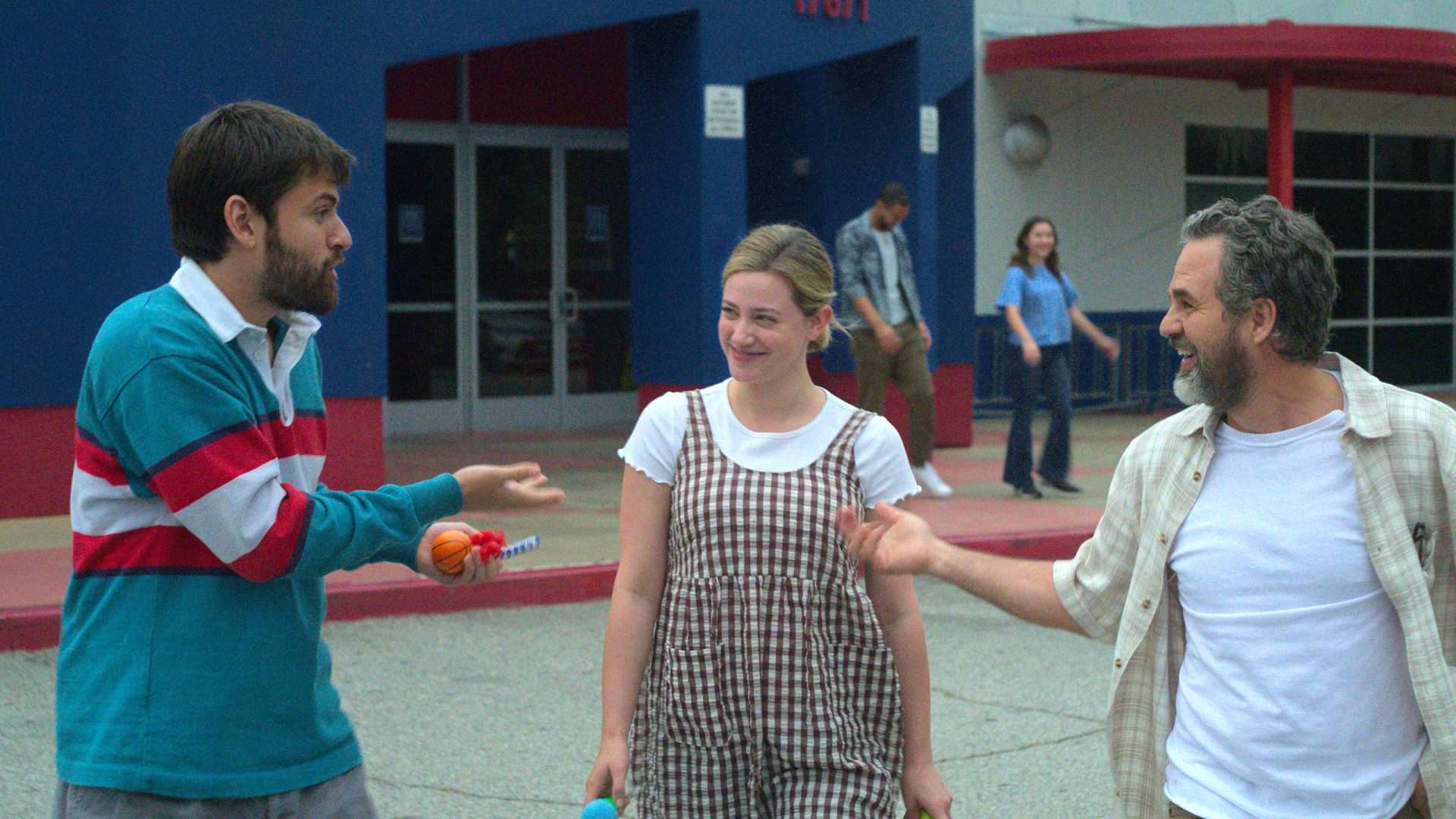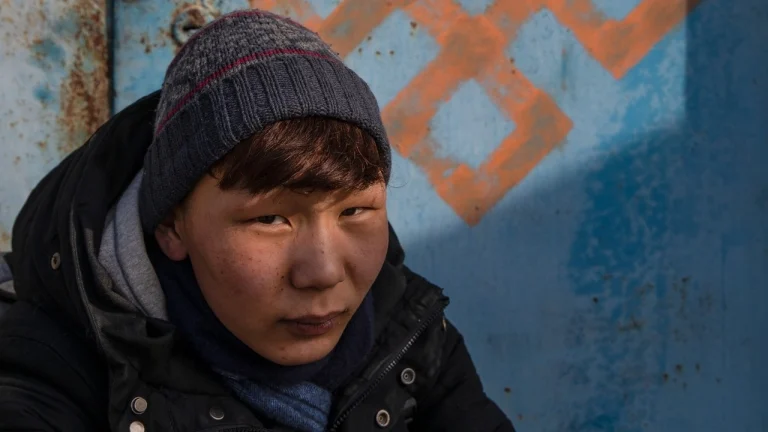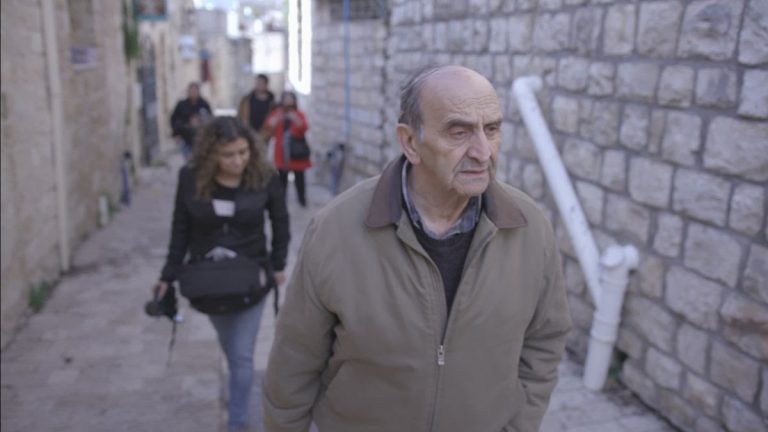Cooper Raiff returns to Sundance with “Hal & Harper” (season 1), a moving drama that follows almost a decade of a family’s life. It brings Raiff’s distinctive slice-of-life narration style that revolves around some of the nicest people you can imagine. Despite their apparent ‘niceness,’ they are just as flawed and multi-faceted as you would ideally want your characters to be. Raiff adds something peculiar in all his heartening dramas that makes it impossible not to be moved by their emotional struggles. So, even the acts of basic human empathy in his films can make you bawl your eyes out.
Much like his debut, “Shithouse” or his sophomore feature, “Cha Cha Real Smooth,” the premise is fairly simple in “Hal & Harper.” This 8-episode-long season mainly follows the titular characters of a brother and a sister, and their messy, but endearing relationship with each other, and with their father. The script shows them change and grow as they experience everything from familial conflicts to relationship woes as they come of age in their own ways. This premise may not seem groundbreaking in itself to many. After all, you must have seen a version of Raiff’s show somewhere, sometime.
Still, “Hal & Harper” makes a strong case against this needlessly compulsive demand for something groundbreaking. You don’t need a convoluted concept to sketch out a compelling drama. All you need is a group of talented actors, writers, and other artists pouring their hearts out into something earnest. Raiff’s show shines due to its simplicity as it itches out the darkest spots and vulnerabilities of his characters with uncommon ease. Much like his other works, people semi-whisper their dialogue in “Hal and Harper.” So, the words seem as light as a feather. That tenderness lends itself to the tone of his overall work.
Raiff’s new show follows a pair of siblings as they navigate their lives roughly from pre-teens to their mid-20s. Raiff and Lili Reinhart play different parts of Hal & Harper’s journey, even the pre-teen versions of themselves. This creative decision appears as adorable as it works in the show’s favor. Raiff embodies Hal’s puberty-adjacent endless energy along with his dire need to fit in as Reihart conveys Harper’s surprising level of level-headedness for her young age. Harper has the added burden of being an emotional pillar for Hal and their dad (Mark Ruffalo).
As a single father, Ruffalo’s character feels burdened by things beyond his immediate realm. Even when around his kids, he is emotionally absent, overcoming a family tragedy that left him in shambles. It makes him unequipped to build a strong connection with nearly everyone. He desperately tries to latch to any sense of hope as his doe-eyed kids look up to him for direction. As Dad falters in his responsibilities, Harper tries to latch on to her innocence while needing to be the missing, mature part of their family’s puzzle. She takes care of Hal when Dad can’t. However, she seeks the same joy that any kid her age would.

The latter stages in Hal and Harper’s lives show them growing in and out of love, experiencing loss and pain while straddling between independence and co-dependence. Hal grows up to be sardonic and careless, at least on the surface. His relationships suffer as he fails to find a healthy balance between expectations and commitments. On the other hand, Harper lives with guilt over the simplest actions as she holds herself accountable for the happiness of nearly everyone around her. In that context, she and Hal appear as the opposite ends of the spectrum, who grow through mutual learning.
While they try to come of age, Dad does so too, through his emotional battles. The script lays out all these events non-linearly and effectively turns itself into an act of finding who these characters truly are. The resulting revelations feel rewarding as they arrive at times when you least expect them. One moment, you see a character amid an emotional crisis and the next moment shows them embracing a part of themselves or others. Through its simplest gestures, Raiff’s show makes niceness look attractive.
Of course, the characters aren’t always pleasant to be around. That’s not the point. What matters is they learn to be more considerate without the character development cliches in similar growth-focused dramas. Their pain, anger, frustration, or fear of rejection is presented thoroughly, with vivid details. So, their joy feels emotionally earned, devoid of melodramatic, grand gestures.
As a grief-stricken father, Rufallo is consistently effective in portraying his character’s constant battle with hopelessness. He offers one of the most unflinching portrayals of someone shutting themselves to the world and being near-fearful of seeking warmth, worried whether it is just another tragedy knocking on the door. Reinhart offers another standout performance as someone who learns to be dependent on others instead of crushing herself under the immense burden of self-expectations.





![A Spike Lee Joint: Bamboozled [2000]](https://79468c92.delivery.rocketcdn.me/wp-content/uploads/2018/11/sleepneat-768x438.jpg)

![First Man [2018]: ‘TIFF’ Review – Faces Some Turbulence But Sticks The Landing](https://79468c92.delivery.rocketcdn.me/wp-content/uploads/2018/09/first-man-768x361.jpg)
